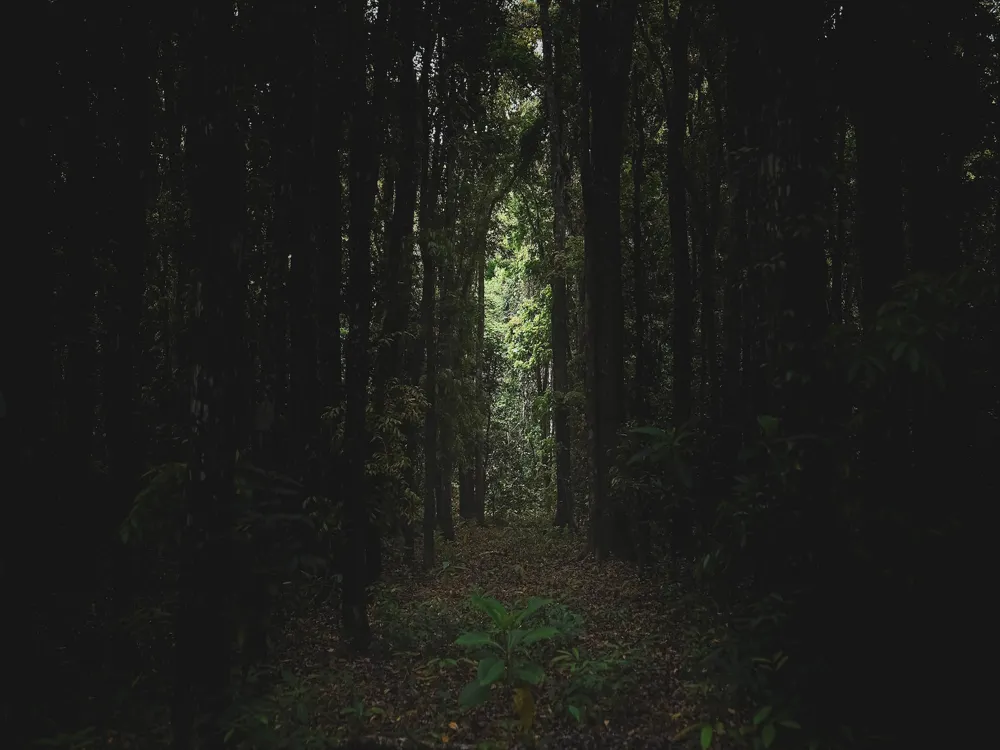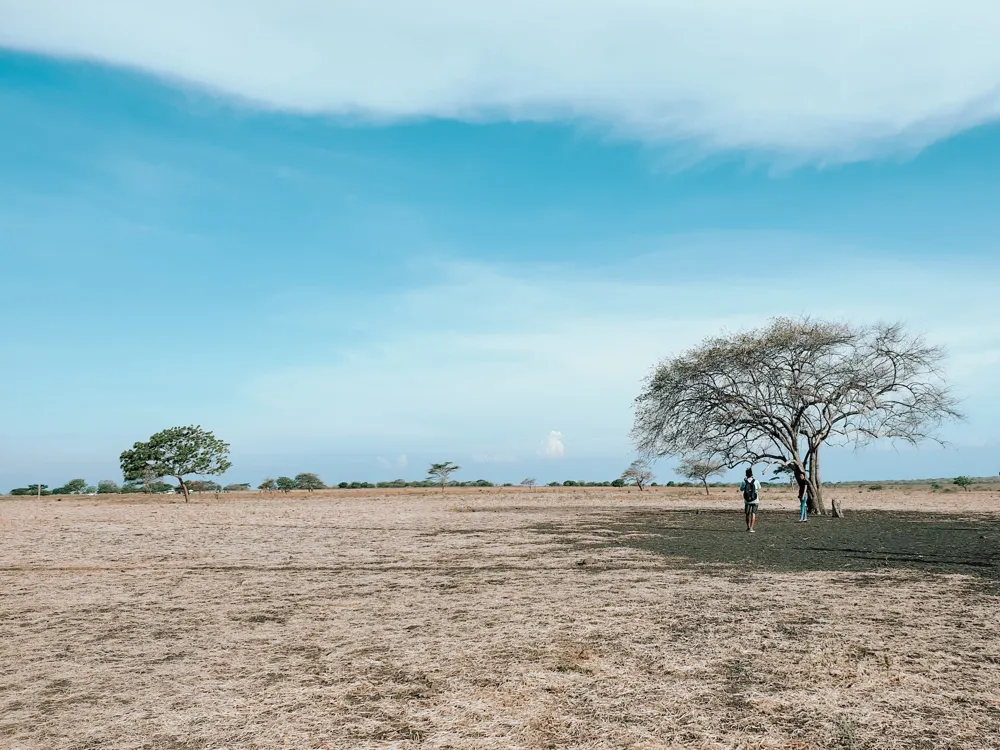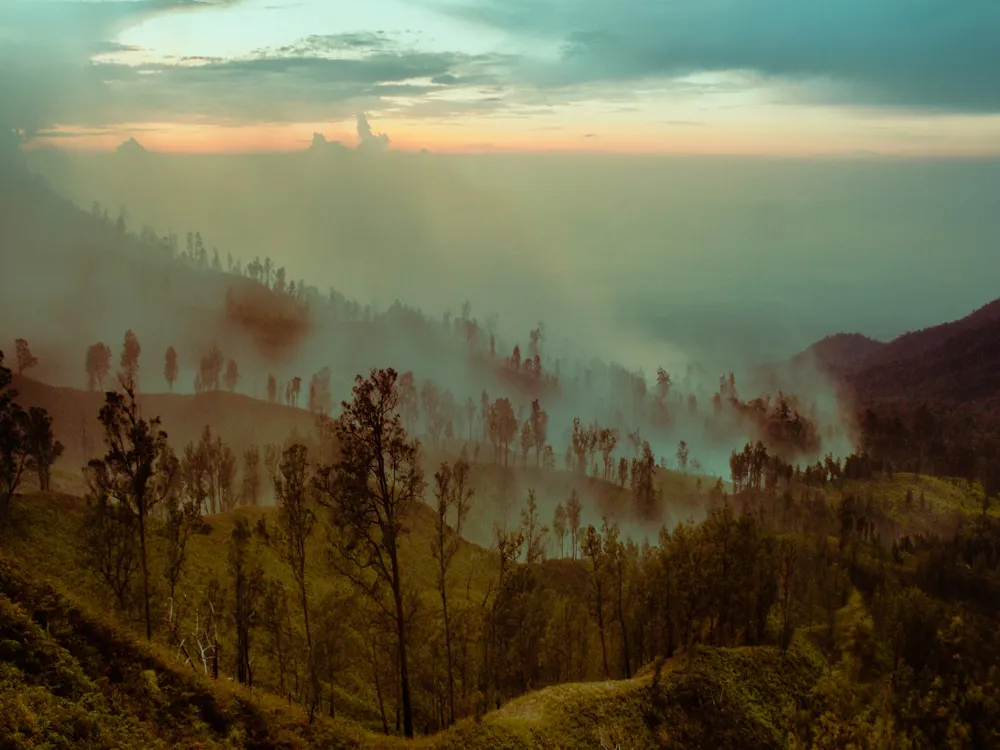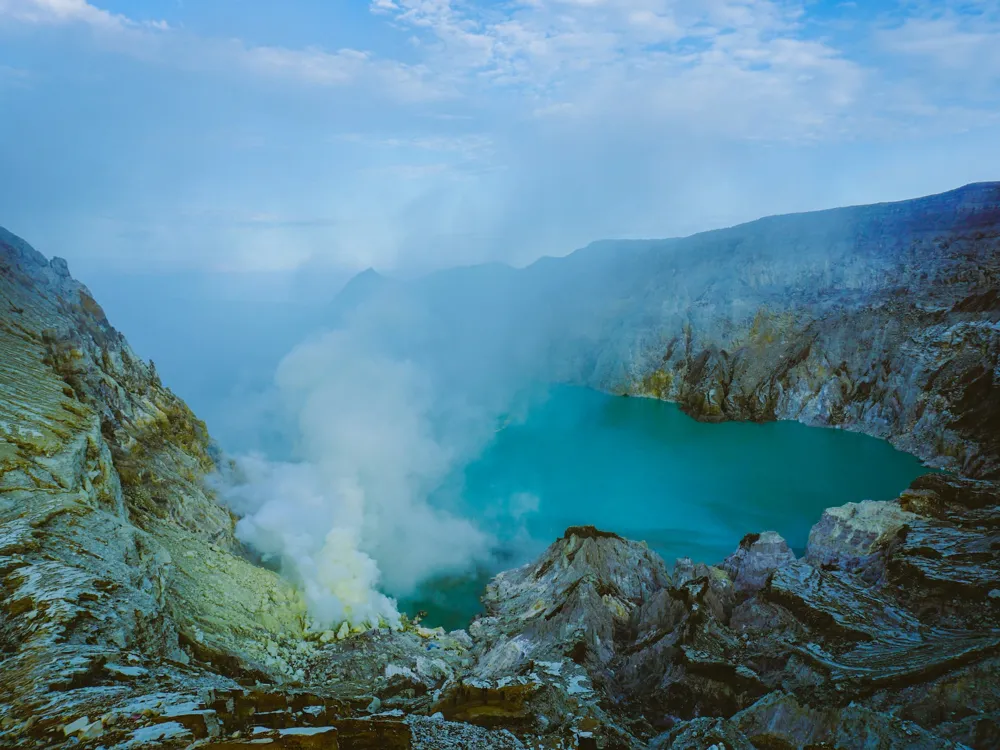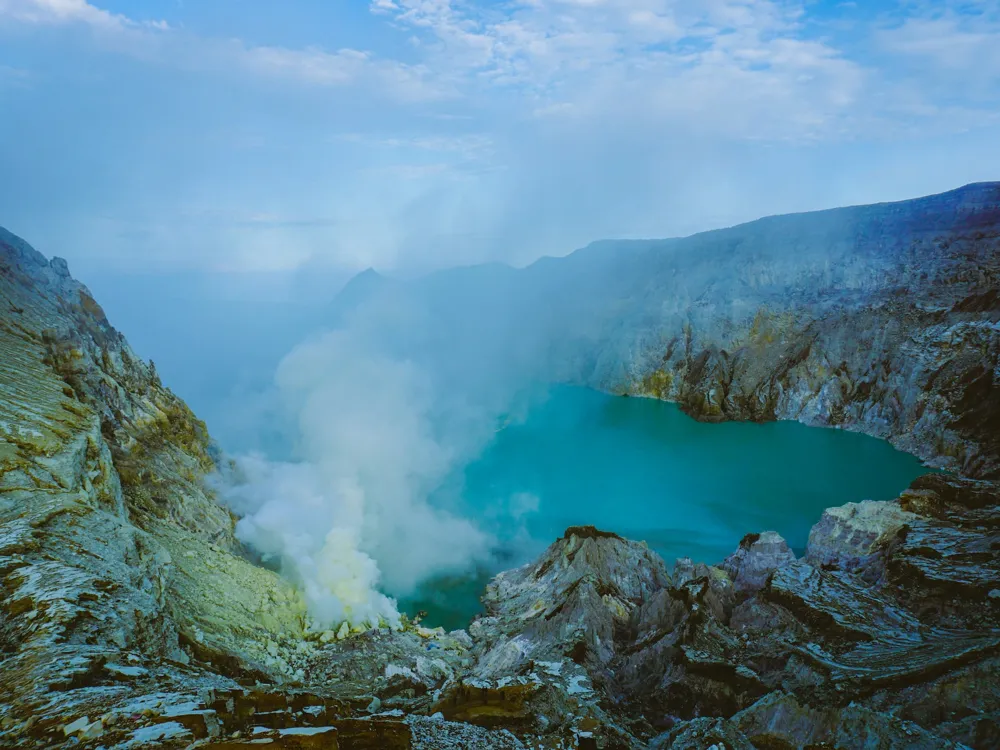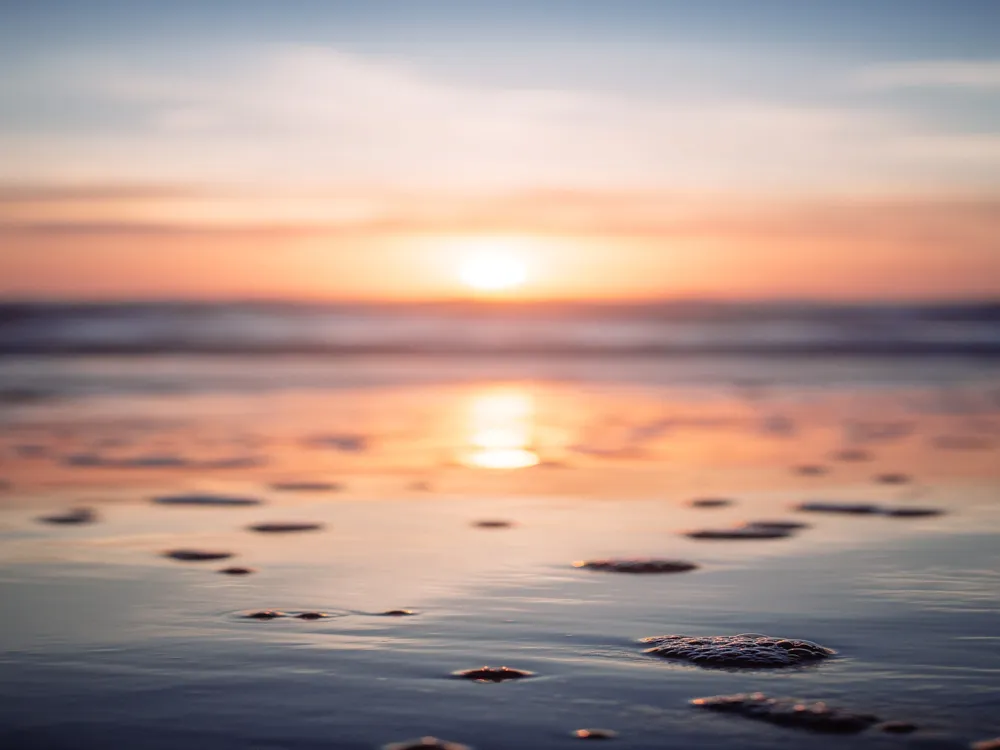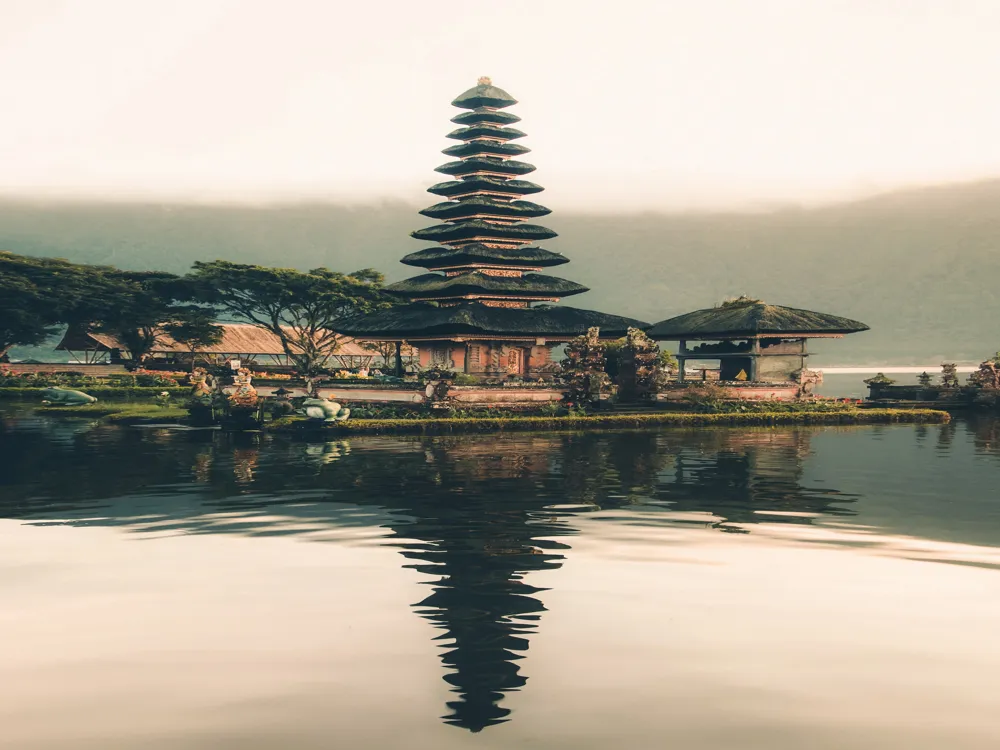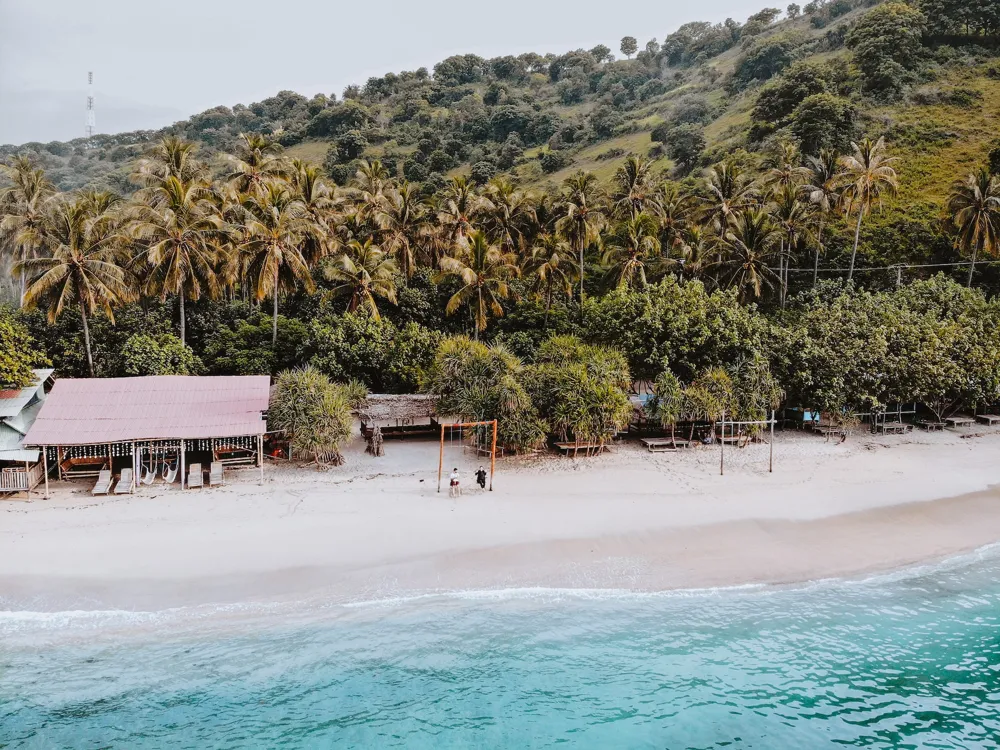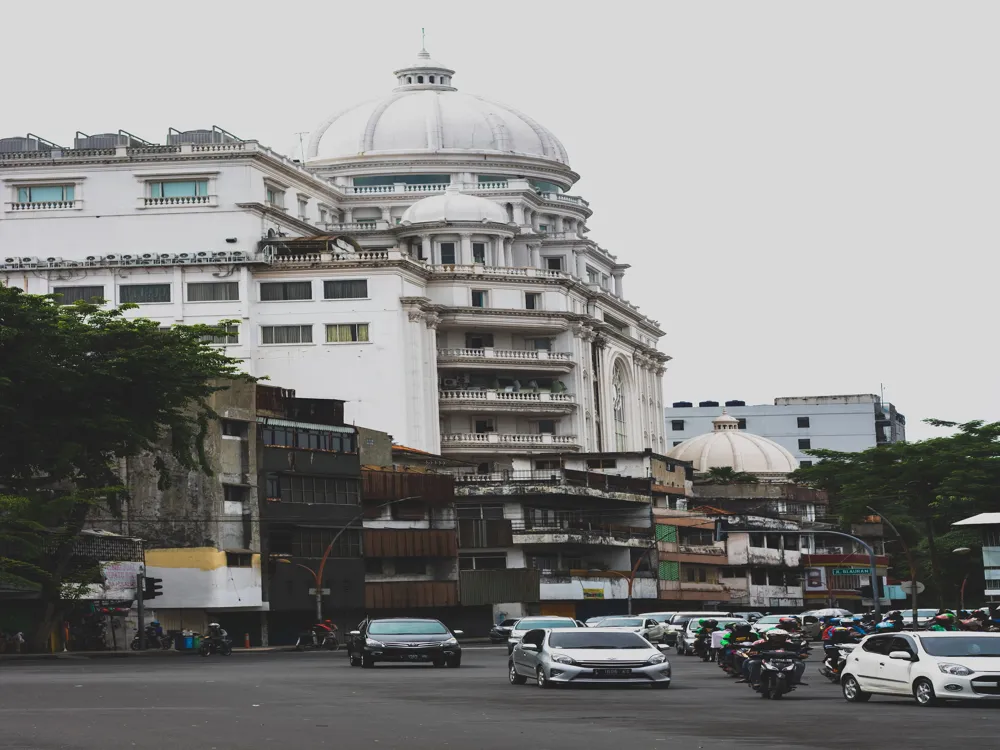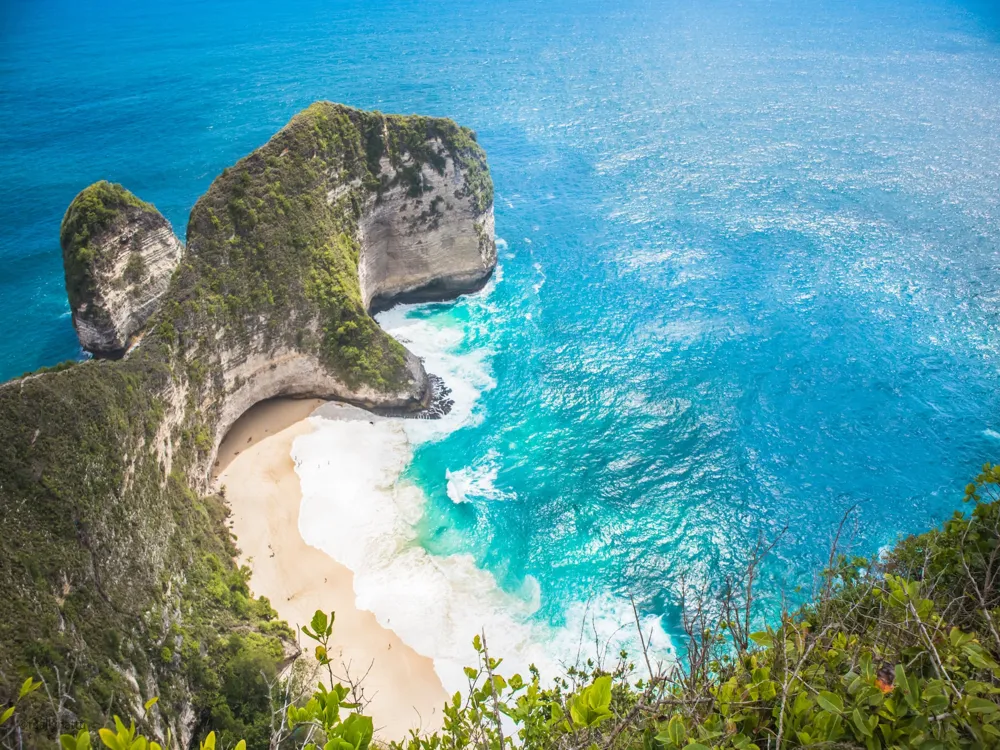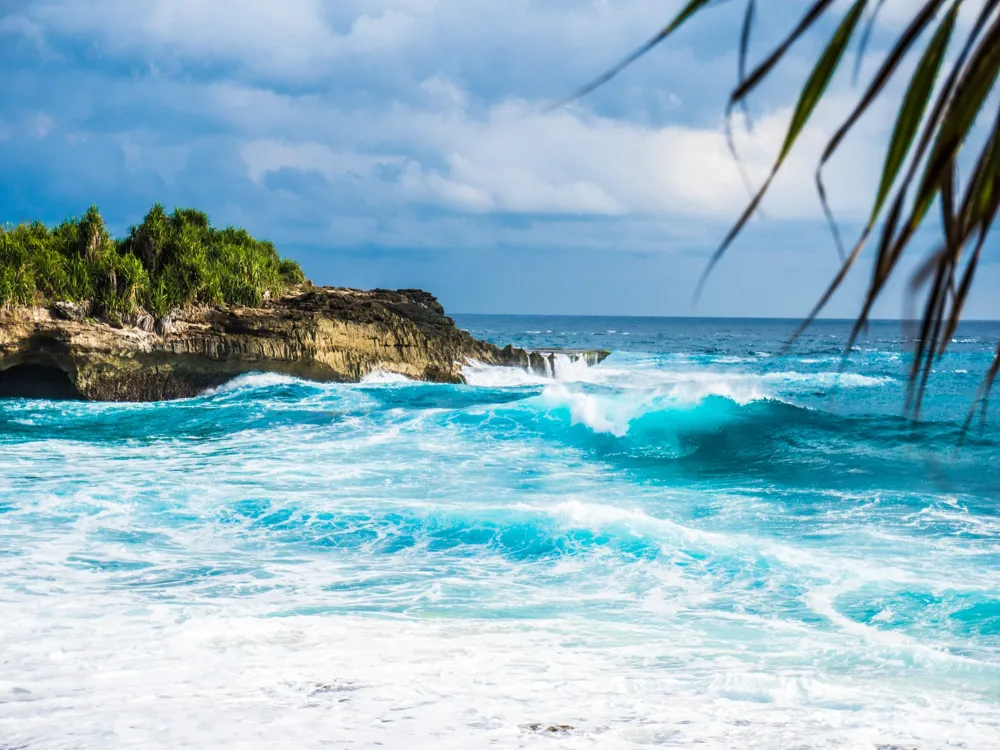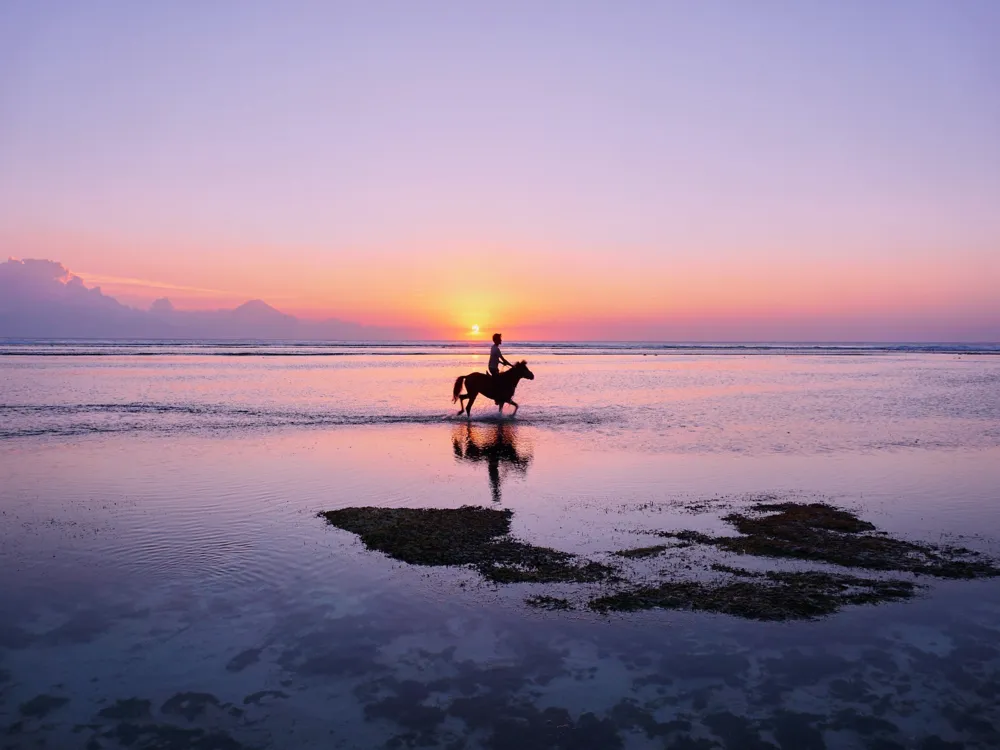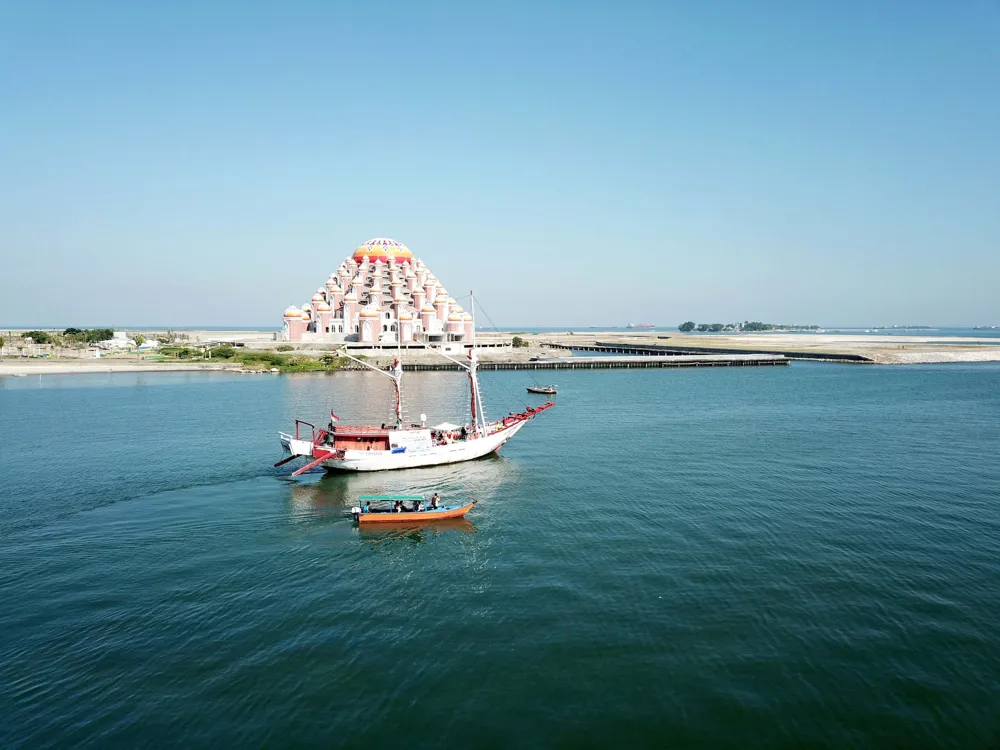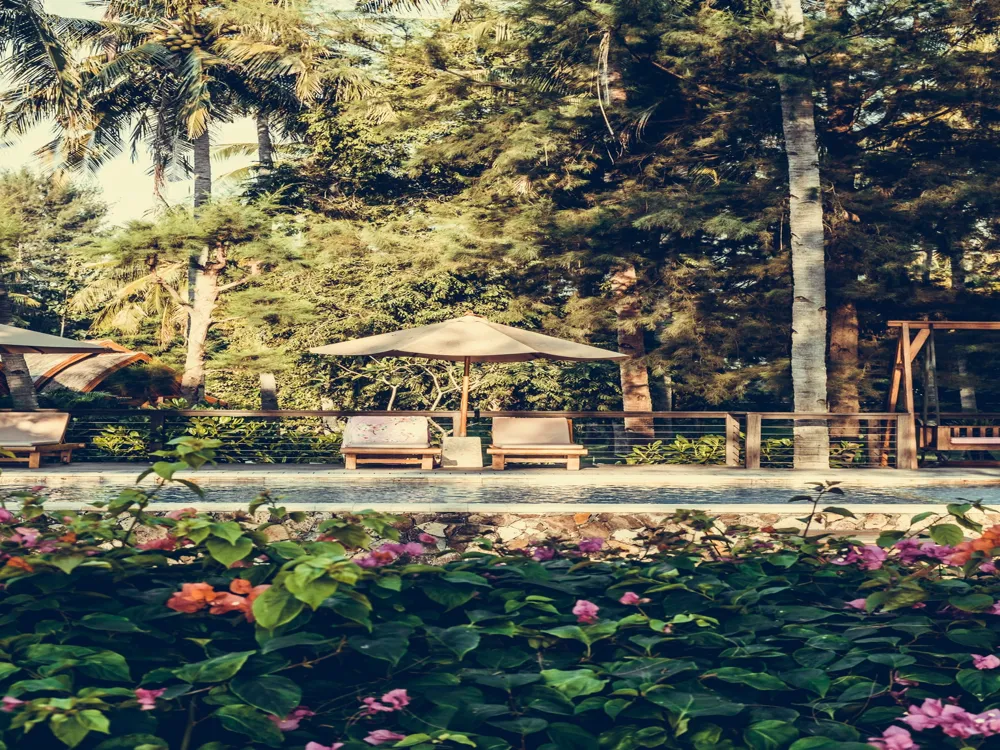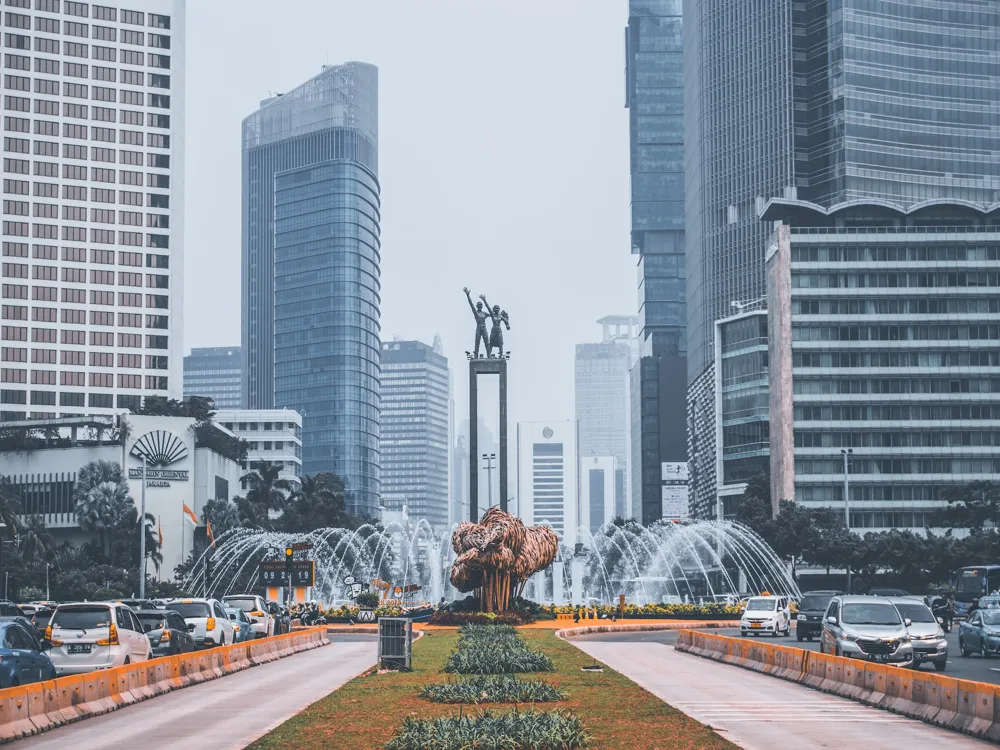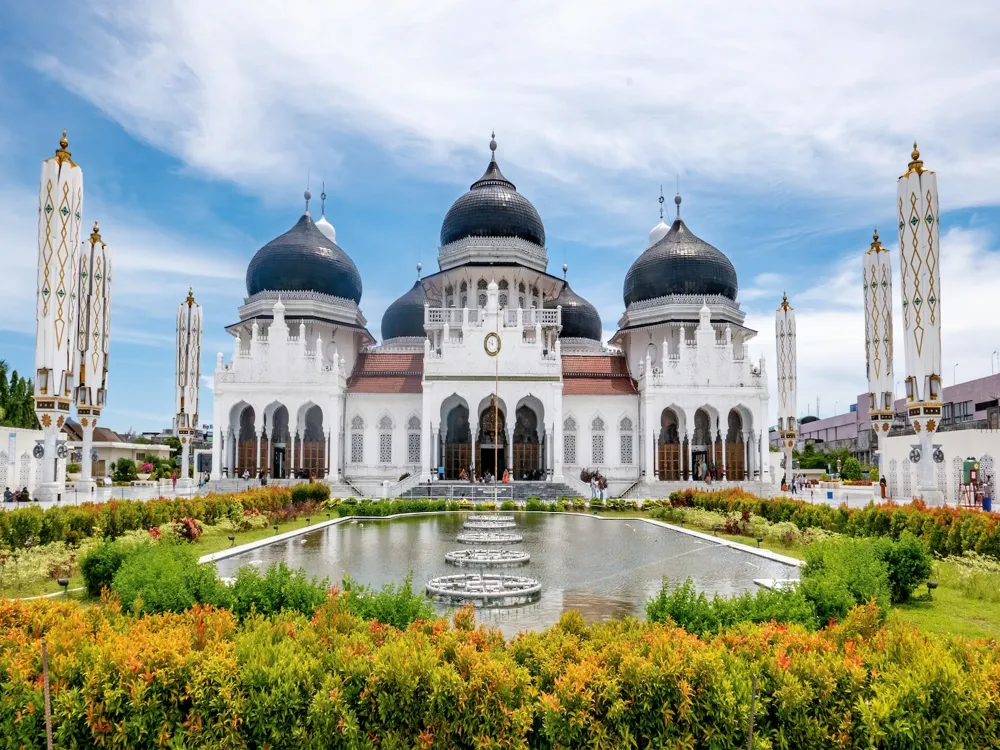Overview of Banyuwangi
Banyuwangi, located at the easternmost tip of Java in Indonesia, is a hidden gem waiting to be explored. Known as the 'Sunrise of Java', Banyuwangi offers an exceptional blend of natural beauty, cultural richness, and a vibrant history that weaves together the fabric of this unique destination. From the enchanting Ijen Crater with its electric-blue flame to the serene beaches and lush national parks, Banyuwangi is a mosaic of natural wonders. The region's history is as colorful as its landscape, influenced by a mix of Hindu, Buddhist, and Islamic cultures, evident in its traditions, festivals, and daily life. Banyuwangi is not just a place to visit; it's an experience to be lived.
Architecture of Banyuwangi
The architecture of Banyuwangi is a testament to its rich cultural heritage and history. The area's architectural landscape is a fusion of Javanese, Balinese, and Dutch colonial influences, creating a unique style that is both traditional and distinctive. Prominent among these are the Osing traditional houses, known for their intricate woodwork and unique roof designs. The influence of Hindu and Buddhist cultures is visible in the temples and monuments, while the Dutch colonial era has left its mark in the form of old buildings and forts. This architectural diversity is not just about structures; it's a narrative of Banyuwangi's past, shaped by various cultural and historical influences.
Tips When Visiting Banyuwangi
Best Time to Visit
The best time to visit Banyuwangi is during the dry season from April to October. During this time, the weather is more favorable for outdoor activities and exploring the natural attractions. The months of July and August are particularly vibrant due to local festivals.
Local Customs and Etiquette
Understanding and respecting local customs is crucial when visiting Banyuwangi. Dress modestly, especially when visiting religious sites. It's also important to be mindful of local traditions and participate in them respectfully when given the opportunity.
Food and Cuisine
Banyuwangi's cuisine is a delightful mix of traditional Javanese and Balinese flavors. Don't miss trying local dishes like Nasi Tempong and Sego Sambel. Street food is also a must-try for an authentic taste of local culinary delights.
Accommodations
Banyuwangi offers a range of accommodations, from budget-friendly hostels to luxury resorts. Choosing a place near the main attractions can save travel time and provide easier access to the region's natural beauty.
How To Reach Banyuwangi
Banyuwangi is accessible via several modes of transportation. The Banyuwangi International Airport connects the region with major Indonesian cities. For those preferring land travel, buses and trains are available from major cities like Jakarta and Surabaya. The ferry service from Bali is another popular option, offering a scenic route to Banyuwangi.











